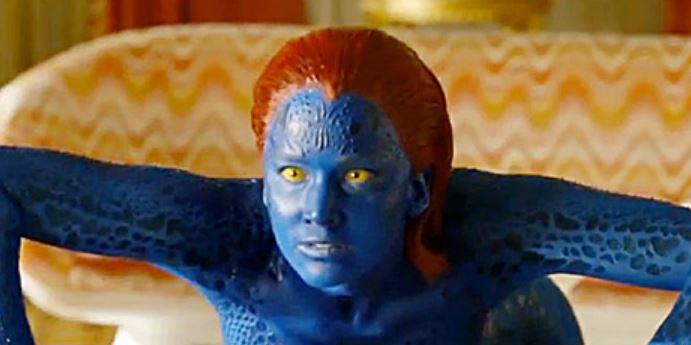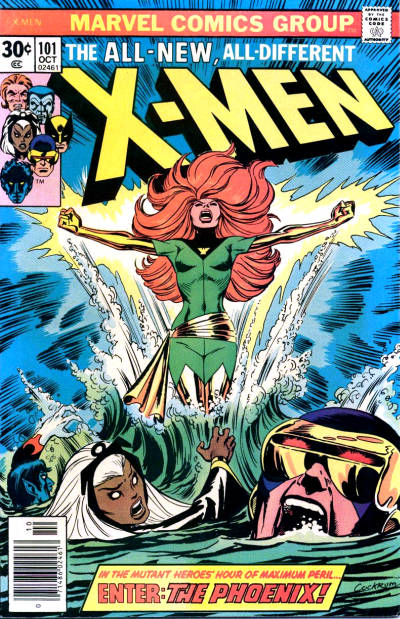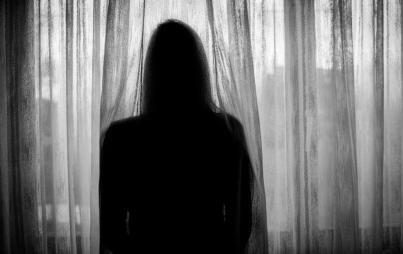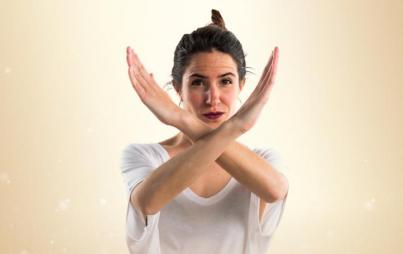
Like many a glorious geek this Memorial Day weekend, I curled up inside a dark theater, watching mutants battle machines in the blockbuster nerd-fest film X-Men: Days of Future Past.
Here's the good news: the film is great fun, and features actress du jour Jennifer Lawrence as kick-ass, blue-bodied protagonist Mystique.
Here's the bad news: it's still utterly sexist drivel. Some things, it seems, just won't change.
Mystique: Overly Emotional, Uncontrollable Instigator of the Apocalypse
Minor spoiler alert! Days of Future Past follows Wolverine as he travels back in time to thwart Mystique from a deadly mistake that ultimately leads to a mutant apocalypse. And what, pray tell, prompted Mystique to make said mistake? Her damn emotions, which cause her to lose all reason and succumb to a crime of tear-streaked passion.
Women . . . are we right?
To stop Mystique, a crew of all male heroes band together to talk some sense into her, with characters literally imploring Professor X to "shut her down" using mind control. Naturally, she's also at the center of a love triangle (actually, more like a love square), since no woman can be a protagonist without multiple love interests to make her more "interesting" unhinged.
Oh I know what you're thinking: "Nikki, this is one X-Men film—there are plenty of other cool, badass female characters too, like Storm and Rogue!"
Except that the much-maligned X-Men: The Last Stand (remember that gem from 2006?) had pretty much the exact same sexist plot. Are we sensing a trend?
Jean Gray: Overly Emotional, Uncontrollable Sociopathic Super-Killer

In The Last Stand, mutant Jean Gray—like Mystique—must be tamed by her more reasonable male peers. Except in her case, when she loses control of herself, she turns into "Phoenix," a batshit crazy she-monster capable of mass destruction.
To stop the crazy woman from acting crazy, Professor X represses Gray's powers. But ultimately, he can't fully restrain her, and like a souped-up version of every man's nightmare, she penetrates Professor X with her wild eyes until he disintegrates into a pile of dust.
Women . . . are we right?
What Gives, X-Men?
It should come as no surprise that X-Men gleefully runs with the same tropes of emotionally overwrought, out-of-control femininity that have been playing at your local cine-plex since the beginning of film.
After all, this is a stereotype with roots in the biblical origin of our very species; it was irrational Eve who fucked up everything for everyone when she lost control of good sense and took a lusty bite of the forbidden apple.
It's just that women already have to contend with so much uber-patriarchal bullshit in comic book films, which are headlined by men every single time and routinely relegate ladies to snoozy love interest roles (Example A: Jane Foster in Thor. Example B: Peggy Carter in Captain America. Example C: Mary Jane in Spiderman. The list isn't pretty and far too long. Need we go on?)
Is it really too much to ask that when a female does have a prominent role, she not be depicted as a super-powered version of an unreasonable woman on her mutant period?
Image: Don't make her cry, she'll kill you. Courtesy of, Wikimedia Commons






